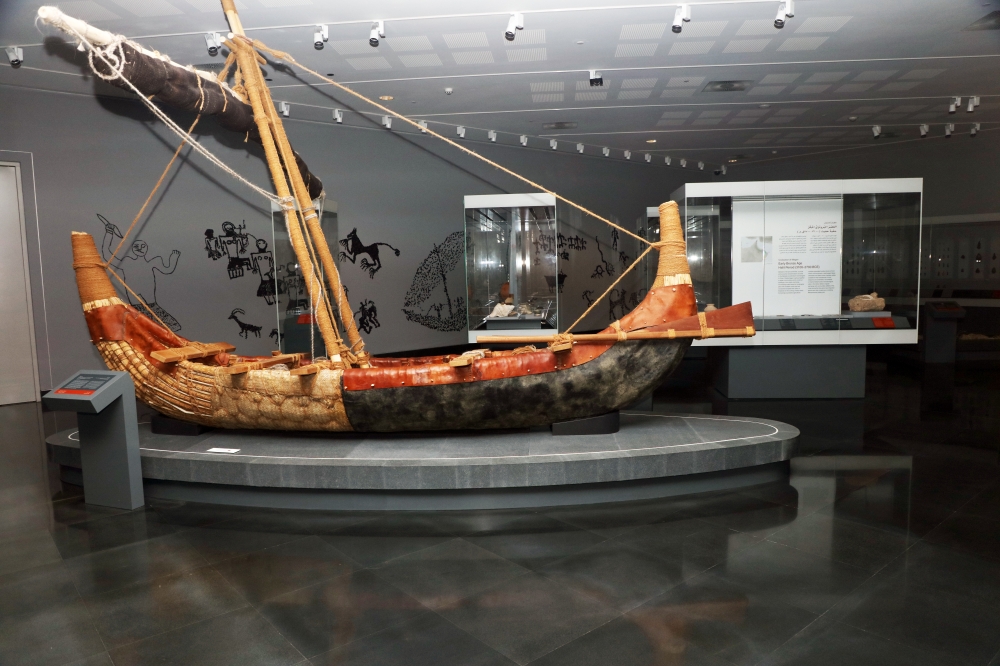

I have been immensely fortunate these past few months to be in Oman on a Fulbright Research fellowship as a PhD Candidate in history at Washington University in St. Louis. I am likewise lucky to be affiliated with the history department at Sultan Qaboos University—a vibrant and friendly academic community—that has helped further my research on the history of education and development in this lovely country.
I first came here in 2019 to study Arabic at the Sultan Qaboos Institute for the Teaching of Arabic to Non-Native Speakers in Manah during a very hot, but enjoyable, summer. I instantly fell in love with the country and found its history so interesting that I changed the topic of my dissertation from Yemen to Oman. In the intervening years, I was able to visit several times for research and tourism, and I am blessed to say I now have many good friends in the Sultanate of Oman.
My path to Oman has been a long one. I spent several years working in the private sector before returning to school for advanced studies. I had enjoyed parts of the jobs that I had, but I missed intellectual labour. In truth, I felt the inquisitive side of myself dying. During this time, I had developed an academic interest in Islam and the Middle East and had started taking Arabic at my local community college while I applied to graduate school. In the first weeks of my master’s programme at the University of Chicago, I realised that I could spend the rest of my life studying this region.

As someone who had previously studied the West almost exclusively—in part because my educational institutions offered few courses in anything else—learning about the Middle East opened my eyes to a vibrant and vast side of the human experience of which I had been ignorant. Studying the history of the translation movement and the philosophical and scientific efflorescence during the Abbasid Caliphate; the architectural wonders of Fatimid Cairo; reading the Shanameh of Ferdowsi, the poetry of Saadi and Hafez, and the novels of Tawfiq al Hakim and Jokha al Harthy, I realised that most of us in the West do not learn this side of history. In the formative period of my studies, and sometimes even today, when I told people what I worked on, they would widen their eyes and look confused. They might ask things like: “Why would you want to study that?” or say: “I can’t imagine reading Arabic...it’s just squiggles”. When I would mention a specific location, they would say, with just a hint of unease in their voice: “that’s a Muslim country”.
On the one hand, considering the absence of Middle Eastern history in our education system, I do not blame these people for their lack of knowledge and understanding. However, this kind of ignorance can, unfortunately, lead to bigotry. On the other hand, I realised I could use my knowledge to be part of the solution to this problem. I could contribute to my chosen field through research and scholarly monographs, and I could share my insight with students as a teacher-scholar.
The teaching aspect of academia has always appealed to me. Research is rewarding, but it is a slow, iterative, and often difficult process whose results may take years to come to fruition. By contrast, teaching and working with students offers the chance to benefit someone’s life almost immediately. Students grow from being introduced to new ideas, and from the process of interpreting and applying new knowledge and skills. Yet, teachers are also rewarded in their hearts by facilitating this growth. Knowing that they have taught a young person a new concept, a new way of thinking, or a new skill, fills the educator with a great sense of gratitude.
Moreover, teacher-scholars can perform kinds of public service using their knowledge. While I was an adjunct at a small college between my MA and the start of my PhD, I helped organise, and participated in, a teach-in entitled: “Everything You Wanted to Know About Islam...but Were Afraid to Ask”. The series brought together scholars from religious studies and anthropology and included the participation of the Muslim members of the college community. After I leave Oman and complete my PhD, I will continue to implement educational programming that draws on my academic expertise and personal experiences at whatever institution I am employed. If I am able to help my fellow Americans learn about this region and appreciate not only its unique and illustrious history but also to see it as an integral part of human history as a whole, then I will have accomplished my mission.
Oman Observer is now on the WhatsApp channel. Click here


